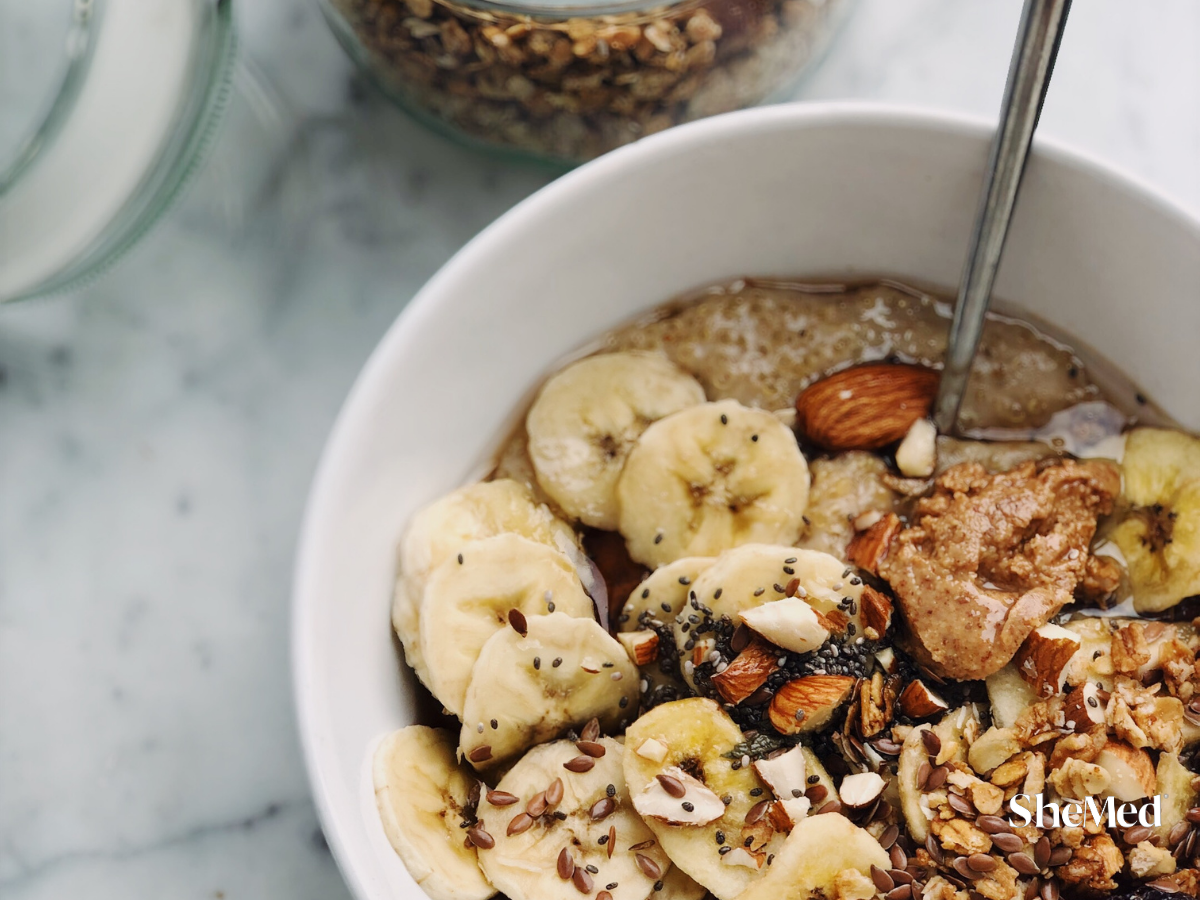
You’ve taken a positive step for your health with a GLP-1 medication like Wegovy, or Mounjaro. The benefits are starting to show, but there’s a catch: a deep, pervasive tiredness that feels worlds away from the energy you were hoping for. If you’re battling the "Ozempic crash" or "Semaglutide tiredness”, you are not alone. This fatigue is a widespread, yet manageable, side effect. It’s often your body’s way of adjusting to a significant metabolic shift and a lower calorie intake. The good news is that by focusing on a few key strategies, you can reclaim your energy and continue your journey towards better health. Managing GLP-1 fatigue isn't about pushing harder; it's about fuelling smarter and listening to your body. This article provides a comprehensive blueprint to help you reclaim your energy and thrive on your treatment journey.
Understanding the Root Cause: Why You Might Feel Tiered on GLP-1
Before we tackle the solutions, it helps to understand why this fatigue happens. Knowing the "why" makes the "what to do" much clearer.
Calorie Deficit & Rapid Weight Loss
This is the primary driver. GLP-1 medications work by suppressing your appetite and slowing down digestion. This naturally leads to a significant drop in your daily caloric intake. Your body, used to running on a certain amount of "fuel," now interprets this as a state of low energy availability. Think of it like a car running on a lower-octane fuel; it still works, but it might not run as smoothly or with as much power.
The Hidden Threat: Dehydration and Electrolyte Imbalance
A frequently overlooked cause of fatigue on GLP-1s is dehydration. With a suppressed appetite, you may not only eat less but also drink less. The feeling of fullness can extend to liquids, and mild, persistent nausea can make the thought of drinking unappealing. This can quickly lead to a state of chronic low-level dehydration.
Dehydration has a direct and immediate impact on energy levels. It reduces blood volume, forcing your heart to work harder to pump oxygen and nutrients to your muscles and brain. This extra workload is exhausting. Furthermore, when you're dehydrated, you lose vital electrolytes like sodium, potassium, and magnesium, which are crucial for nerve function and muscle contraction. An imbalance in these minerals can lead to muscle weakness, dizziness, and a profound sense of lethargy.
Hormonal and Metabolic Adjustment
GLP-1 medications are not just appetite suppressants; they are powerful hormonal agents that fundamentally alter the communication between your gut and your brain. As described in studies published shows these drugs mimic natural hormones that signal satiety to the central nervous system. This process of rewiring your body's hormonal feedback loops requires a significant amount of energy. Your central nervous system is working overtime to adapt to these new signals, which can manifest as central fatigue, a feeling of exhaustion that isn't relieved by rest.
Nutritional Fixes: Fueling Your Body Efficiently on GLP-1s
While you are consuming fewer calories overall, the quality of those calories becomes more important than ever. Think of your diet not just in terms of weight loss, but as your primary tool for energy management.
A clinical study of a GLP-1 RA highlighted that participants who followed dietary advice and injected weekly saw an average 18% lower energy intake compared to placebo, with significant reductions in body weight and cardio-metabolic risk. A strategic nutritional approach can make the difference between feeling drained and feeling energised.
Prioritise Protein for Sustained Energy (The Non-Negotiable)
When your calorie intake is low, protein is your single most important macronutrient. Its role is twofold: it promotes satiety, helping you feel full and satisfied on smaller portions, and crucially, it helps preserve lean muscle mass. During rapid weight loss, the body can break down muscle tissue for energy, but muscle is your metabolic engine; it burns more calories at rest than fat does. Preserving it is vital for maintaining your metabolism and long-term energy levels.
Actionable Tip: Aim to include a high-quality protein source in every small meal or snack. This provides a steady supply of amino acids to your muscles and helps stabilise blood sugar, preventing energy dips.
- Breakfast: Greek yoghurt, scrambled eggs, or a small protein smoothie.
- Lunch: A small chicken breast, a portion of fish, or a lentil and quinoa salad.
- Dinner: Lean mince, tofu, or a bean stew.
- Snacks: A handful of nuts, a hard-boiled egg, or a piece of cheese.
Optimise Carbohydrate Timing
Carbohydrates are your body's preferred source of quick energy, but the type and timing are critical. Large loads of simple, refined carbohydrates (like white bread, sugary snacks, pasta, and sugary drinks) will cause a rapid spike in blood sugar, followed by an inevitable and sharp crash that will leave you feeling even more tired.
Instead, focus on small portions of complex, high-fibre carbohydrates. These are digested slowly, providing a gradual and sustained release of energy.
Actionable Tip: Pair a small portion of a complex carb with your protein source at mealtimes. For example, a few spoonfuls of brown rice with your chicken, a small slice of wholemeal toast with your eggs, or some oats in your yoghurt. This combination provides both immediate and long-lasting energy.
Hydration and Electrolytes

Conscious hydration is non-negotiable for fighting GLP-1 fatigue. You cannot rely on thirst signals alone, as the medication can blunt them.
This evidence from research demonstrates that blander, low-fat, protein-focused meals before and after GLP-1 injections, alongside vigilant hydration and gradual reintroduction of fibre, are essential for comfort and safety. Clinical nutrition counselling further reduces side effect severity and supports long-term adherence for patients using Ozempic, Wegovy, or Mounjaro.
Actionable Tip from the National Health Service (NHS)
Keep a water bottle with you at all times and sip consistently throughout the day, even if you don't feel thirsty. Aim for the NHS-recommended 6-8 glasses (around 2 litres) of fluid daily. If you struggle with plain water due to nausea, try infusing it with lemon, cucumber, or mint. For an electrolyte boost, consider a low-sugar electrolyte powder mixed into your water, a cup of nourishing bone broth, or a glass of low-sugar coconut water.
Check Key Nutrients (Speak to your GP)
When you significantly reduce your food intake, particularly red meat, you may be at risk for deficiencies in key micronutrients that are vital for energy production. The two most common culprits are:
- Iron: An iron deficiency can lead to anaemia, with profound fatigue, weakness, and shortness of breath being hallmark symptoms.
- Vitamin B12: This vitamin is essential for creating red blood cells and converting food into energy. A deficiency can cause extreme tiredness and weakness.
Actionable Tip: Do not self-diagnose or begin taking high-dose supplements without medical guidance. Discuss fatigue with your GP and request a blood test to check your iron (ferritin) and B12 levels. If a deficiency is found, they can recommend the appropriate supplementation.
Lifestyle Adjustments for Daily Energy Management
Beyond nutrition, simple adjustments to your daily routine can build energy resilience and help you navigate the periods of peak tiredness more effectively.
The Power of Gentle Movement
When you are exhausted, the last thing you may feel like doing is exercising. Pushing yourself through a high-intensity workout can be counterproductive, depleting your already low energy stores. However, gentle, low-impact movement can have the opposite effect.
Activity like a 20-minute walk, gentle yoga, or stretching boosts circulation, delivering more oxygen to your cells. It also releases endorphins, which can improve your mood and provide a natural energy lift.
Actionable Tip: Instead of forcing a hard workout, schedule a short walk during your lunch break or in the evening. Listen to your body and focus on movement that feels restorative, not draining.
Mastering Sleep Hygiene
Quality sleep is your body's ultimate recovery tool. During sleep, your body repairs tissues and replenishes energy stores. GLP-1s can sometimes interfere with sleep patterns, so establishing excellent sleep hygiene is paramount.
NHS Guidance
Prioritise getting 7-9 hours of consistent, high-quality sleep. The NHS offers excellent guidance on improving sleep hygiene, including:
- Consistent Schedule: Go to bed and wake up at the same time every day, even on weekends.
- Screen Curfew: Avoid screens (phones, tablets, TVs) for at least an hour before bed, as the blue light can disrupt melatonin production.
- Create a Restful Environment: Ensure your bedroom is dark, quiet, and cool.
- Relaxation Routine: Develop a calming pre-sleep ritual, such as reading a book, taking a warm bath, or listening to calming music.
Strategic Injection Timing
Many users report that fatigue peaks in the 24-48 hours following the injection. If you notice this pattern, you can use it to your advantage by strategically timing your dose.
Actionable Tip: If your injection day is Wednesday and you consistently feel wiped out on Thursday and Friday, consider moving it. Switching your injection to a Friday evening allows the peak fatigue to fall over the weekend, when you may have more flexibility to rest and recover, leaving you with more energy for the working week.
Portion Control for Nausea Management
Nausea is a common side effect that is intrinsically linked to fatigue. If you feel sick, you are less likely to eat and drink, leading to low energy and dehydration. Managing nausea is therefore a key part of managing fatigue.
Actionable Tip: Instead of three larger meals, switch to "grazing" on very small, bland, and frequent meals throughout the day. This keeps your stomach from becoming empty, which can trigger nausea, and also prevents the lethargy that can follow a larger meal. Think small portions of crackers, dry toast, plain chicken, or rice every 2-3 hours.
When to Contact Your Doctor
While fatigue is a common side effect, it's vital to know when it might signal a more serious issue or when you need professional support. Do not hesitate to reach out to your GP, pharmacist, or your weight management service provider.
Persistent or Debilitating Fatigue
If your tiredness isn't improving after the first few weeks on a new dose, or if it's so severe that it prevents you from performing your daily activities such as working, caring for family, or managing your household, it's time to seek medical advice. This level of fatigue is not something you should simply push through.
Signs of Serious Issues
Contact your doctor immediately if your fatigue is accompanied by any of the following "red flag" symptoms:
- Severe or persistent vomiting or diarrhoea
- Dizziness, light-headedness, or fainting
- A persistent rapid heart rate
- Confusion or difficulty concentrating
- Signs of severe dehydration (e.g., dark urine, no urination for 8+ hours)
Medication Review
Large-scale semaglutide trials show GI side effects (nausea, diarrhoea, vomiting, constipation) are most frequent in the first weeks post-injection but are usually mild and resolve with time and dietary management. Persistent severe symptoms warrant clinical review, as 3.9% of participants discontinued therapy due to GI intolerance, especially if fluid loss led to dehydration.
Your prescribing clinician, whether your GP or a specialist within a Tier 3 weight management service, is there to support you. Schedule a check-in to discuss your fatigue. They can review your dosage, arrange for blood tests to rule out other causes, and provide personalised advice tailored to your health profile.
Conclusion
Fatigue on GLP-1 medications can be challenging, but it is almost always manageable. By shifting your focus to high-quality nutrition, prioritising hydration, embracing gentle movement, and optimising your daily routines, you can effectively combat the crash and regain your vitality. Remember to view this period of adjustment as a temporary trade-off for the incredible, life-changing health benefits that these medications offer. You are fundamentally improving your long-term health, and learning to support your body through this transition is a powerful act of self-care. Be patient with yourself, listen to your body's signals, and implement these strategies consistently.
Key Insights
- Fatigue is a common but usually temporary side effect during the initial weeks or dose changes in GLP-1 therapy, caused largely by rapid calorie deficit, dehydration, and metabolic adjustments.
- Maintaining steady energy requires prioritising nutrient-dense meals rich in protein and complex carbohydrates, staying well hydrated, and managing electrolyte balance, which helps mitigate tiredness and supports overall metabolism.
- Gentle physical activity and good sleep hygiene are critical lifestyle adjustments that improve circulation, mood, and energy levels without overtaxing the body during the drug adaptation period.
- Persistent, worsening, or debilitating fatigue should prompt medical evaluation to exclude other causes, reassess medication dosing, and ensure safe continuation of GLP-1 therapy under healthcare supervision.
Frequently asked questions (FAQs)
- Why do GLP-1 medications cause fatigue?
GLP-1 receptor agonists reduce appetite and slow gastric emptying, often leading to a rapid calorie deficit. This sudden drop in energy intake, combined with changes in metabolism and hydration status, can cause tiredness, especially during the initial adjustment phase or dose increases. - How long does the fatigue usually last when starting GLP-1 therapy?
Fatigue typically improves within a few weeks to months as the body adapts to new metabolic and hormonal states. However, some individuals may experience intermittent tiredness during dose adjustments or if caloric intake remains very low. - What dietary changes can help manage GLP-1-related fatigue?
Prioritising regular intake of high-quality protein and complex carbohydrates, staying well hydrated, and maintaining electrolyte balance through appropriate supplementation can support energy levels and reduce fatigue symptoms. - When should I seek medical advice about fatigue on GLP-1 medications?
You should contact your healthcare provider if fatigue is severe, persistent beyond the initial weeks, or accompanied by concerning symptoms like dizziness, confusion, or inability to perform daily activities. A medication review and blood tests may be necessary to rule out other causes.
References
- NHS. (2022). The Eatwell Guide. NHS.UK. Available at: https://www.nhs.uk/live-well/eat-well/food-guidelines-and-food-labels/the-eatwell-guide/
- NHS. (2021). How to get to sleep. NHS.UK. Available at: https://www.nhs.uk/live-well/sleep-and-tiredness/how-to-get-to-sleep/
- Müller TD, Finan B, Bloom SR, et al. Glucagon-like peptide 1 (GLP-1). Mol Metab. 2019;30:72-130. doi:10.1016/j.molmet.2019.09.010
- Barrera JG, Sandoval DA, D'Alessio DA, Seeley RJ. GLP-1 and energy balance: an integrated model of short-term and long-term control. Nat Rev Endocrinol. 2011;7(9):507-516. Published 2011 Jun 7. doi:10.1038/nrendo 2011.77
Take charge of how you look and feel.
Backed by science. Guided by experts.
SheMed’s medical weight loss programme combines expert care and science-backed treatment to help you feel and look your best — for life.
SheMed’s medical weight loss programme combines expert care and science-backed treatment to help you feel and look your best — for life.
The content on the SheMed blog is provided for general informational and educational purposes only. While SheMed provides professional weight loss services and strives to ensure the information shared is accurate and up to date, we make no representations or guarantees as to its accuracy, completeness, or timeliness. This content should not be taken as personal medical advice or a substitute for consultation with a qualified healthcare provider. Always speak with your doctor or licensed medical professional about your individual health or medical needs before starting any new treatment or programme. Never disregard or delay seeking professional medical advice because of something you have read on this site. SheMed is not responsible for any actions you may take based on the information provided in this blog.
Subscribe to our Newsletter
Thank you! Your submission has been received!
Oops! Something went wrong while submitting the form.


